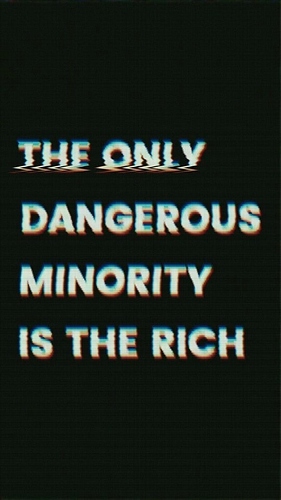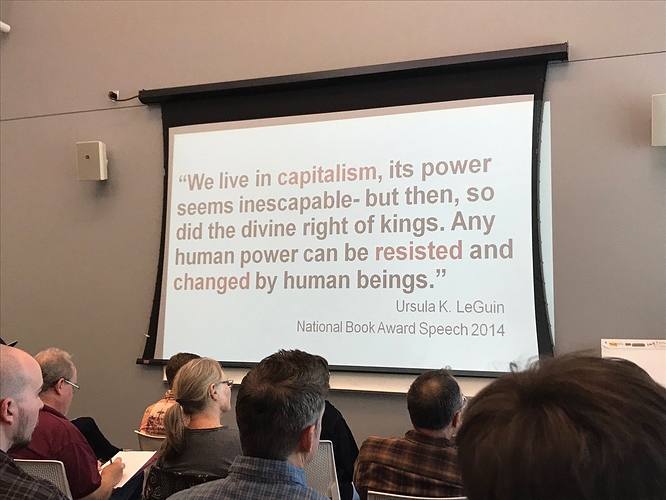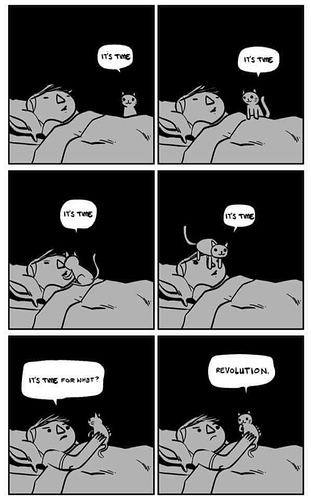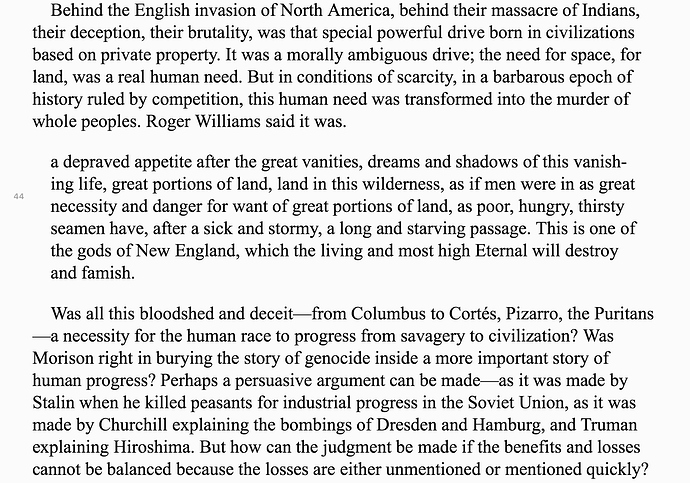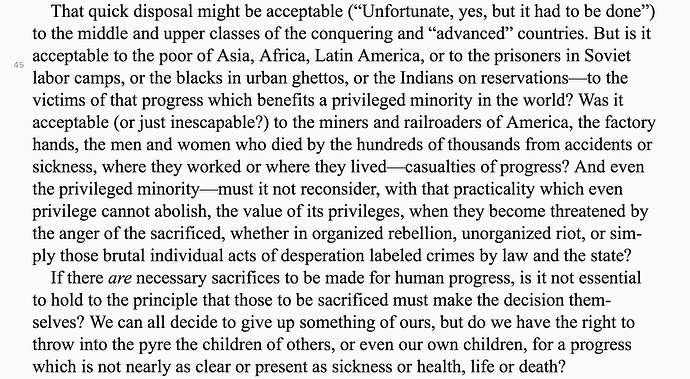There’s a lot in this paragraph I want to unpack, but I’ll start with how I define wealth and excess wealth without making it about workers-vs-non. Puff pieces tell us the “happiness” threshold (beyond which more money does not improve self-reported well-being) is an income of 75-85k$/yr. How income at that level becomes assets is messy but the savings rate and accumulation of equity on your wages approximates a profit margin. For many individuals, profit margin is near zero, especially below the minimal middle class level.
At a point, though, personal income becomes a much less important a measure of wealth, replaced by assets. Capital is just assets that give a person more control over their business (physical and intellectual property or just a giant wad of cash to allow one to operate at a loss until one shoves out one’s competitors). As with wage income, profit margin on revenue goes to security and investment, though maybe not investment in the generating business.
People who don’t want to work who get to this level invest as much as possible to grow their portfolio. An investment portfolio doesn’t require much work to run, so a probably stressful or uninteresting business is easily disposed of to fund a long retirement. Interestingly, this conservative kind of greed limits the possibilities for really great wealth and carries also the rejection of creative enterprise.
Depending on your lifestyle and what you do for work, wealth beyond that happiness sweet spot needn’t be a simple matter of greed. It may not make people happy but it does allow people to use what talents they have to their fullest. Ambition for craft and commercial accomplishment—again, apart from naked greed—can drive people on even when a desire for happiness is ignored. This level of operation is harder to pin down and its possibilities are restricted depending on the industry. I can imagine a driven individual driving themselves to burnout at some hands-on, everyday work at revenue levels of 30k$—or extending to as much as 30M$. Imagine a pro athlete or the owner-operator of a ship.
Still, there’s a level at which non-greed-based ambition also fails. A management team is hired to replace the owner, who moves on to other things. A passion maybe; a second project, what’s called a lateral move. Assuming their brain hasn’t turned to pudding from spending too long running a company or taking concussions on the playing field. A second or third project can be successful. After the work of building a business to a high level is done, the only trade the very wealthy can excel at is contract law. Apart from that, the supposed genius of an owner is useless. There’s too much detailed technical work, too much technically-savvy management of many teams of technically able people. There’s no room for being there if you aren’t really in it.
They simply do not have enough time in the day to manage their wealth.
In an analogy to stellar evolution, the only step up for this incompressible neutron-person (or a lazy, greedy person at a much smaller mass money level) is to collapse in a splash and go to a very dark realm.
Some wealthy are born in this dark place. They are sent to college for business management to prove that they aren’t unstable at low masses—possibly after a stint in military school. If they fail they’re thrown to the finance apprenticeships. If they succeed they know the value of professions like contract law and promotion but mostly they move on and up by taking on lawyers, managers, and industry fixers in ever-tighter webs of loyalty until, one by one, the minions are spaghettified by their proximity and velocity without ever really meeting the cipher at the core of their life.
The nice thing for these menacing masses of wealth is that at that level, profit margins can be increased without much attention or any knowledge… except where the contracts and copies of contracts are kept under lock and key. Effort is not an issue, just the loyalty of a certain minimum ratio of minions. Of course, these dark stars in the middle of tortured clouds of minions desire as close to 100% loyalty as possible—anything less is a insult.
Beyond those entrained by one of these beasts, superclusters of these blob-lords have created a situation where an ability in contract law is the most important trait for becoming powerful. The collective has powerful protections for abusive contracts, powerful laws against democratic control of trade, powerful bylaws within political parties. Application of that power results in a denigration of every other form and level of wealth: skills, knowledge, satisfaction in a living wage—comfortable but not extravagant. Wealth based on a moderate understanding of what wealth is good for, trading standards based on customer trust and quality, even the fundamental understanding of the place of business in society, all that is destroyed by the ever-sucking palatial egos of the very rich.
tldr: There are different kinds of wealth. Beyond a certain level, there is only one kind, the bad kind.
*sorry for the wall
